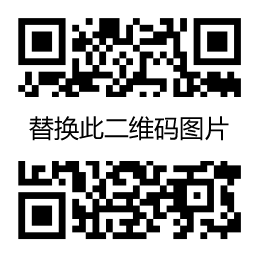教学目标
知识目标:
(1)New word and phrase: rock, band, concert, give a concert, tonight, singer, journalist, famous, song, more than, thousand, accident, careless, fall down, break, go on, someone, heart, past, end, at the end of, happen, part, tourist, go back, in a hurry, grape, science, marry, get married, subject, friendship, anyone, Swedish, Sweden Beatles, Stockholm, Liverpool
(2)Grammar: 一般过去时态(三)
规则动词过去式及读音
不规则动词过去式及读音
there be结构过去时态的陈述句,疑问句及否定句形式
I didn’t see many tourists here.
They didn’t stop the concert after the accident.
(3)日常交际用语:Is this your first visit to…?
How many…were there…?
There was /were…
Was/were there…?
They got married in…
(4)语音/s/ s, ss, se ,c/z /z, s, se /sp/ sp /st/ st /sm/ sm /sw/ sw
能力目标:
(1)要求学生能读懂课文回答课后的问题并能根据上下文判断生词词义。
(2)要求学生能熟练运用一般过去时态并能根据情景做口头和笔头练习。
(3)能听懂与课文难度相当的听力资料。
(4)能运用there be结构过去时态的陈述句,疑问句及否定句形式进行交际。
情感目标:
培养学生广泛的兴趣和爱好,使学生了解音乐给人类带来的美感。
教学建议
教材分析
本单元主要教学内容是围绕谈论过去经历的事情。Lesson 37主题是采访歌手。Lesson 38是介绍演唱会的过程。there be结构过去时态的陈述句,疑问句及否定句形式是本课的重点。Lesson 39是介绍旅游过的景点。Lesson 40是介绍父辈们的经历。一般过去时态的教学贯彻始终整个单元。要求教师多创设情景使学生能灵活掌握一般过去时态的用法。
Lesson 37的对话和Lesson 39选择式对话,突出了一般过去时态疑问句的句式特点,一定要用助动词did来完成(指的是行为动词)。Lesson 38和Lesson 40中的两篇文章“Yesterday’ in concert!”“My father”,不但训练了我们的阅读理解能力,而且教我们如何用一般过去时态去写过去的事情。同时“My father”给我们的单元写作训练提供了范例,可让学生模仿写一篇家人的文章。
关于37课的建议
在本单元的教学中,教师应以一般过去时态为主,综合各种时态创设不同情景,提高学生综合运用语言的能力。此练习可以在完成本课内容后进行。
(1)模拟家访
情景:教师到兰蓝家去家访。教师先准备一个家访提纲如下:
Name: Lan Lan
The past: always forget her homework, sometimes late for school, careless
Now: study hard, never forget her homework, get to school early
学生先进行讨论:如果你是家长你怎么问,如果你是老师你怎么回答。
组织学生进行对话如下:
Lan Lan’s father: Hello!
Lan Lan’s teacher: Hello!Are you Lan Lan’s father?
Lan Lan’s father: Yes, I am.
Lan Lan’s teacher: I am Lan Lan’s teacher.
Lan Lan’s father: Glad to meet you.
Lan Lan’s teacher: Glad to meet you too.
Lan Lan’s father: Can you tell me something about Lan Lan?
Lan Lan’s teacher: Ok.
Lan Lan’s father: Did Lan Lan often forget her homework?
Lan Lan’s teacher: Yes. But not now. She always finishes her homework on time.
Lan Lan’s father: Was she often late for school?
Lan Lan’s teacher: Yes, she did in the past. but now she never gets to school late.
Lan Lan’s father: Is she still careless?
Lan Lan’s teacher: No, she studies harder than before.
(2)教师可以组织学生按照课文进行角色表演。
(3)课本的第二部分主要是讲解there be结构过去时态的陈述句,疑问句及否定句形式,教师可以将它改编成一段记叙文。如下:
There were four singers in the band last year. There were also some women in it.
But there was a problem at that time. One of the singers wasn’t good. People didn’t like her. There are three singers now. There isn’t a problem any more.
笔头训练建议
要求学生能讲述一个自己所经历的故事,教师可以设计一个开头,如:It was Sunday yesterday. I went to the park with my classmate. It was very hot. On my way to the park I saw an old man walk along the street. Suddenly, he fell down the street 让学生自由完成后续部分。
根据阅读课文My father来写一篇介绍学生家庭成员(grandmother/ grandfather)的文章。让学生先就课文所提示的问题向他们的祖父母进行调查,这些问题涉及到他们的出生年代,所受教育,婚姻、子女及工作状况。然后分小组对各人所了解的情况进行讨论,以便互相补充和启发。
关于there be结构的一般过去时的建议
教师在引入时应使用比较法让学生自己比较下列句子的区别,总结出两种时态在意义上和在结构上的区别。
(1)There is a book on the desk. There was a book on the desk a moment ago.
(2)There are some apples in the bag. There were some apples on in the bag yesterday.
然后教师在使用实物教学使学生完全掌握此结构。例如教师在桌上放一些实物问What is / are there on the desk? 学生根据实际情况答There is / are …on it. 教师还可问Is there…? Are there…? How many …are there? 并把这些问题写在黑板上。问答完毕,教师可把桌上的东西收起来,然后问:What was there on the desk a moment ago? Was there…? Were there…? How many …were there? 等问题,可帮助学生回答。
There be 结构与have / has
在英语里表示“什么地方或时间存在什么事物或人”时,要用there be结构。在此结构里,there 是引导词,本身没有词意,be是谓语动词,be后的名词是主语,主、谓语的数必须一致,句子的结尾是地点或时间状语。如:
There is a ruler on the desk.
There are many students on the playground.
在使用这个结构时应注意以下几点:
1. there be结构变成否定式时,须在动词be后加not(a / any)或no。变成疑问句时,将be放在there之前,句中如有助动词时要把助动词放在there之前,句子其余部分不变。如:
There aren’t any pencils in the pencil-box.
There are no pencils in the pencil-box.
Is there any milk in the bottle?
Will there be a meeting next week.
2. there be结构有两个并列主语时,要根据就近的主语原则确定谓语是单数还是复数。如:
There is a boy and two girls in the picture.
There are two girls and a boy in the picture.
3. There be 结构中的be可有不同的时态,而且可以和各种助动词和情态动词连用。如:
There is going to be a sports meeting in our school in May.
There must have been an accident there. (现在完成时,以后我们会学到的)。
4. there be结构中的谓语动词be,有时可用seem to be, happen to be, used to be, stand, live等词或词组来代替。如:
Once upon a time, there lived in Greece a great thinker named Aristotle.
从前在希腊居住着一位名叫亚里斯多德的伟大思想家。
There seems to be something wrong with you.
There stands a tall tower in the middle of the square. 在广场中央竖立着一座高塔。
5. 注意there be 结构与have / has 的区别。there be表示“存在有”,而have / has 则强调人或物体本身“具有”(has 只用于第三人称单数)。如:
My sister has many toys.
China has a long history.
We have a lot of friends.
have / has变成否定式时,应在其后加not或借助于助动词don’t或doesn’t;变成疑问句时,将have / has提在主语前或借助于助动词do或does放在主语前。如:
I have not a bottle of orange.
I don’t have a bottle of orange.
Do you have a red pen?
Have you a red pen?
注:I have no Chinese car. = I don’t have a Chinese car.
Lesson 37教学设计方案
Teaching Objectives:
By the end of the lesson, Ss should be able to interview somebody.
声明:有的资源均来自网络转载,版权归原作者所有,如有侵犯到您的权益 请联系邮箱:yuname@163.com 我们将配合处理!
原文地址:The Swedish rock band-教学教案发布于2021-10-22

